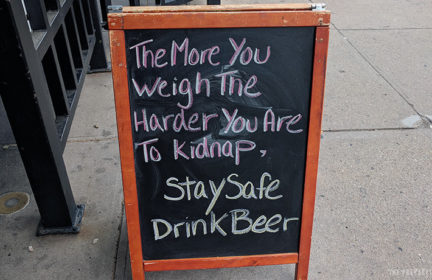Learn how to persevere during a crisis before the crisis happens
“TOO WEAK!” The dojo walls echoed the screams of our instructor.
We were in formation, row upon row of exhausted, sweat soaked students. He stalked up and down the rows, and around the perimeter of the class, his eagle eye catching every imperfect punch or kick.
The worst offense was not to train hard enough. If one person was lax, everyone was punished. The penalties were double knee jumps or pushups or both.
“DOUBLE KNEE JUMPS NOW! ONE, TWO, ONE, TWO!”
The count was rapid and relentless.
We soared in the stifling heat, strained to send our bodies upward, and drew our knees up into our chests. As soon as our feet hit the floor, the rapid pace of his count drove us back up again.
Over and over we repeated the movement in the sweltering heat of the dojo. It was situated in an old building without air conditioning and we trained upstairs. The heat of the hot summer day rose to where we trained and combined with the thermal energy that radiated from our bodies.
Thirty seconds of double knee jumps at his pace was brutal. Sixty seconds was an indication that our instructor was really annoyed with the lazy offender in class.
No one complained because the double knee jumps were better than the bamboo rod that used to be administered for not training hard enough.
Regular training consisted of warm-up, calisthenics and flexibility. We rotated through an assortment of skills: kicks, punches, patterns, sparring, and heavy bag training.
In almost every class, his corrections would rise above the thunder of feet hitting the dojo floor or the kiyups yelled in unison. “HAAAHHH!” The kiyups rose from deep in our bellies and up, and tightened our solar plexus as the sound blasted out of our mouths.
One of our instructor’s preferred verbal admonishments was to stop the class and tell us “What will you do in a fight for your lives? Are you going to tell your opponent that you are tired and need to take a break? Do you think your opponent will stop? NO! TOO WEAK! NOW TRAIN HARDER!”
His point was simple: learn to push beyond what you think you can do because it can save your life or someone else’s life someday.
I pushed myself through many limits during my training. Even my experience with “runners’ wall” during my running days was nothing like what I learned in that class.
I experienced what it meant to literally drop during a heavy bag workout. While I was being dragged off the floor and checked for cardiac by a fellow student who happened to be a physician, my thoughts were to get back in there and keep going.
I chose knuckle push ups over the other type of push up allowed for women because they strengthened my wrists.
My preferred sparring partners were men. Sparring with taller men taught me to become fast and proficient with my kicks. I learned to overcome their longer limbs by getting in close past that radius.
I favored sparring partners who listened to me when I told them to forget you’re sparring with a female. I wanted to desensitize myself to the image of a larger and more powerful male coming at me and overcome that difference in combat.
Beneath my gi (uniform) was a road map of bruises from torn muscles and sparring. Not every student pushed that hard. I chose to push hard and train hard at the dojo and at home.
Tenacity or perseverance is something we can develop by challenging ourselves to continue in the face of adversity. It is an asset for a prepper.
It is a trait that we can rely upon in times of crisis, and if resources are stretched thin, it becomes a very important asset.
Tenacity can make the difference between survival and death.
Think about why some people give up just before they succeed. Just before they overcome a problem, some people stop trying, stop fighting and they just give up.
You don’t have to be a martial artist to learn tenacity. Push yourself every day to do better, to carry on when you are tired, to complete the task when you’re overwhelmed and frustrated. Just keep going. Don’t give up.
Don’t wait until there is a crisis to develop this trait. You can practice and learn tenacity each and every day.
Don’t be the one who gives up just before the finish line, or before the battle is won, or before the crisis is over. Persevere and survive.
-
Comments (10)
-
